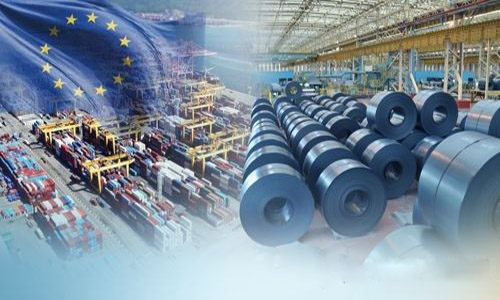The revised regulation maintains the safeguard measure for steel imported into the EU until the expiry date of June 30, 2024. The regulation takes effect from July 1, 2023.
The above amendment was made following an investigation into whether the early termination of a safeguard measure - before June 2023 - is reasonable according to aggregated import data for 2022. maintain safeguard measures on steel imported into the EU until the expiry date of June 30, 2024. The regulation takes effect from July 1, 2023.

All tariff quotas (TRQs) of the steel safeguard measure will continue to increase by 4% from 1 July 2023. Any WTO member that is a developing country is exempt from application if its share of exports to the EU remains below 3% of total imports for each product category. In addition, if, in a given category, the aggregate share of imports from developing countries (with individual shares below 3%) total exceeds 9%, all developing countries will have to subject to the same measures in that list of products. The Commission is committed to monitoring the increase in imports after the measure is adopted and regularly reviewing the list of excluded countries.
According to the above Regulation, the countries that benefit from the opening of country-specific quotas include Brazil, China, Egypt, India, Indonesia, Malaysia, Moldova, North Macedonia, Oman, South Africa, and Turkey. Ky and Vietnam. Vietnam is further applied to category 26 and removed from category 3A compared to the old scope of application. All developing countries are included in categories 4B, 5, 25B and 28 because their total import share in 2022 is less than 3%, which is higher than 9%.
The steel safeguard measure was introduced in the summer of 2018 after the US imposed 25% tariffs on the EU and other countries for national security reasons, and worried that the European market was bogged down by overcapacity. In 2022, Belarus and Russia are completely excluded from the EU steel market and their quotas are reallocated. The EU steel safeguard measure expires next year. But it seems likely to continue to be stretched, especially if the original motive of the US Section 232 tariff rule - now transformed into a tariff quota - is still applied against the EU.
Thus, together with CBAM regulations, these safeguard measures will increase barriers for steel exports to the EU.